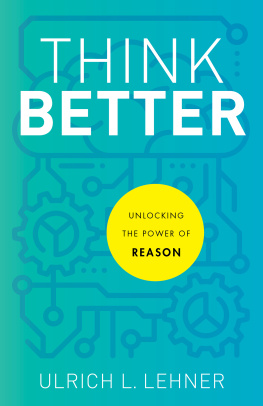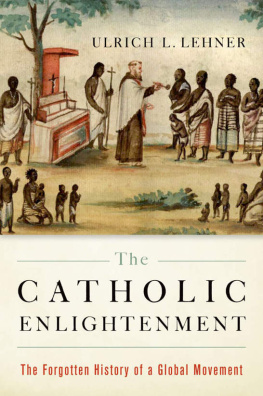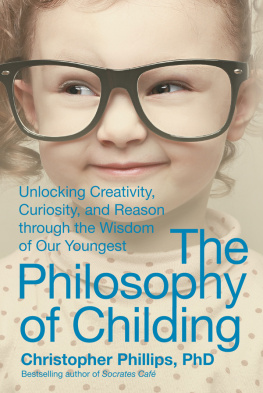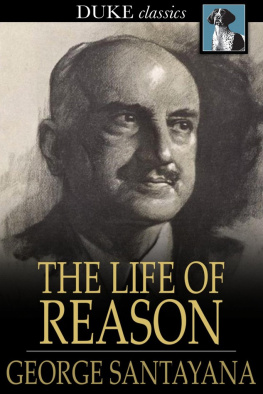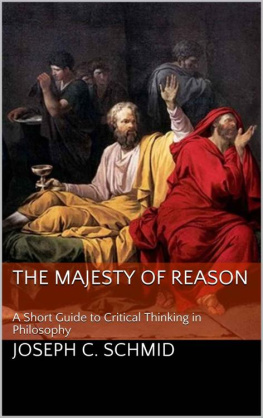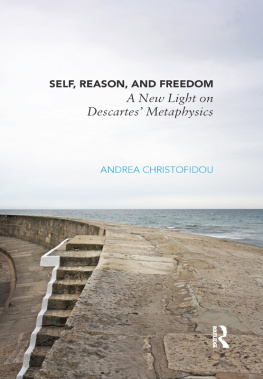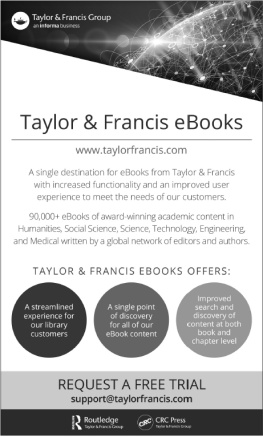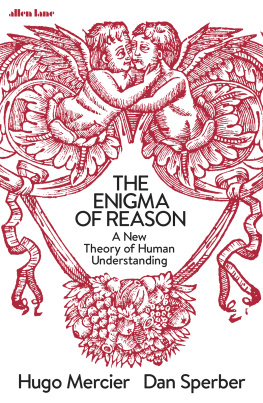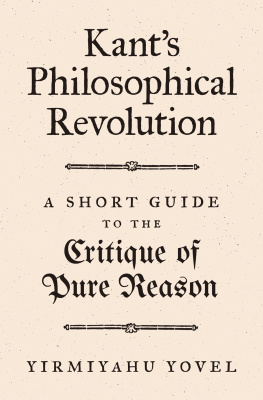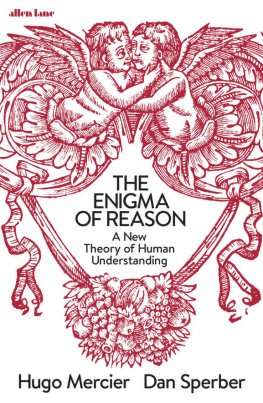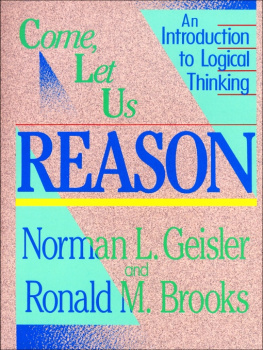2021 by Ulrich L. Lehner
All rights reserved. No part of this publication may be reproduced, stored in a retrieval system, or transmitted in any form or by any meansfor example, electronic, photocopy, recordingwithout the prior written permission of the publisher. The only exception is brief quotations in printed reviews.
Library of Congress Cataloging-in-Publication Data is on file at the Library of Congress, Washington, DC.
Scripture quotations are from the New Century Version. Copyright 2005 by Thomas Nelson. Used by permission. All rights reserved.
Baker Publishing Group publications use paper produced from sustainable forestry practices and post-consumer waste whenever possible.
Contents
Endorsements
Title Page
Copyright Page
Introduction: Empowering Minds
1. Knowledge Is the Basis of Good Reasoning
Knowledge Is Conversational
How to Train Your Will, or When It Is Better to Shut Up
2. Have Realistic Goals and Humility
Knowing Always Desires Truth
Knowledge and Incompetence
Knowledge Is Not Piecemeal but Holistic
3. The Power of Reason and Eternity
Where Do We Find Laws?
Laws Are Ghosts from Another World
4. Knowing Yourself Is the Key to Logical Thinking
The Principle of Identity
Becoming Mindful of Your Surroundings
Objects Teach Us about Reality
Finding Relationships between Objects
Nothingness Is Your Invention
5. Good Thinking Is Always Focused
My Thinking Is Not Identical with Brain Events
Thinking Is Not Feeling
Thinking Abstract Things
Order for Our Thinking: Genus and Species
Our Mind Is Not Inventing Justice
The Tools of Thinking Are Analysis and Synthesis
Beware of Bad Comparisons and Analogies
6. Critical Thinking
Be Active and Not Passive
Cutting through Nonsense
You Know What Is Good Evidence
Trust Is Not Uncritical
Distrust and Illiteracy Are the Problems!
Overcoming Confirmation Bias
7. Without Order There Is No Good Reasoning
A Grid Brings Order
Thinking Coherently Takes Effort
8. Ignorance Is Not Bliss
Ignorance as a Moral Weakness
Better Thinking Can Save Our Failing Society
Overcoming Ignorance Drives Innovation
9. Real Thinking Sets You Free
Freedom and Reason Need Each Other
Is My Experience of Freedom Reliable?
Save Your Freedom by Thinking
Freedom Is More Than Choice
The Pinnacle of Freedom Is Forgiveness
10. Thinking Happens in a Soul, Not a Computer
Dont Get Robbed of Your First-Person Experience
Your Brain Is Not a Computer
Immaterial Matter and the Soul
Can Matter Produce Mind?
Personal Identity and Soul
11. Majority Rules Dont Make Truth
The Principle of Noncontradiction
Can I Be a Skeptic?
How Many Does It Take?
12. Real Thinking Discovers Causes
The Classic Four Causes
Do Things Just Pop into Existence?
Coming into Existence Needs a Cause
Do Things Pop out of Existence?
Potency and Change
13. Thinking about Goods, Values, and Morality
Emotions Are Not about Truth
The Rational Foundation of Morality
14. Thinking Saves Lives
Intentional Perception
Disputing Irrational Beliefs
15. Empathy Is Achieved by Hard Thinking
Walking in Somebody Elses Shoes
Self-Awareness Is Needed for Empathy
Thinking about Emotions
16. Leadership, Values, and Your Thoughts
Characteristics of Leadership
Ubuntu as a Key to Moral Leadership
Recognizing and Hearing the Other
17. Creative Thinking Is Not a Mystery
Divergence, Convergence, and Lateral Thinking
Overcoming Mental Blocks
How to Become Creative
18. Reasoning Helps Us Find Unity in a Divided World
Connectedness and Personhood
Giving All a Home
Unity in Diversity
Notes
Index
Back Cover
Introduction
EMPOWERING MINDS
A s you think, so shall you become. The first time I read this quote that some attribute to Bruce Lee, I was struck by how profound it was. It captures the wisdom of ancient Eastern and Western philosophy alike that our life is what our thoughts make it (Marcus Aurelius, 12180 CE). The way to more powerful and productive reasoning lies in using it to its fullest potential. For that purpose, we have to find out what reasoning is, how it works, and in what instances we can use it. By doing so, we will not only identify strategies to empower our minds but also begin to walk the path of philosophy and begin the search for wisdom. This quest is far from impractical because it enables us to become more focused in our work, find peace in our minds, and explore the hidden creativity of our souls. And believe me, I am speaking as someone who has found such empowerment.
For almost all my adult life I have engaged with questions of knowledge and truth, philosophy here, philosophy there, but only last year did the power of reasoning really become clear to me. I sat in the chair of a psychologists office. He was evaluating a long list of tests I had taken for the last four hours. My eyes were fixed on him when he finally looked up, smiled, and said, Your intuition was right. You definitely have ADHD! I was not surprised, and neither was my family, who had always suspected it. Nevertheless, what amazed me was how bad I was at doing commonplace things, such as paying attention and being able to listen to others. Yet how had I been able to become a renowned researcher with these deficits? My psychologist told me the answer: Because you must have developed behaviors that compensate for your lack of attention. And these behaviors made you successful.

